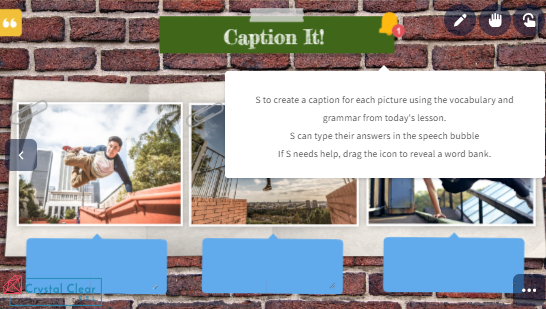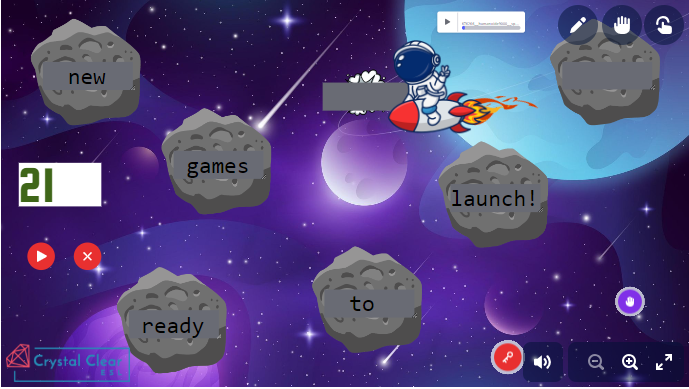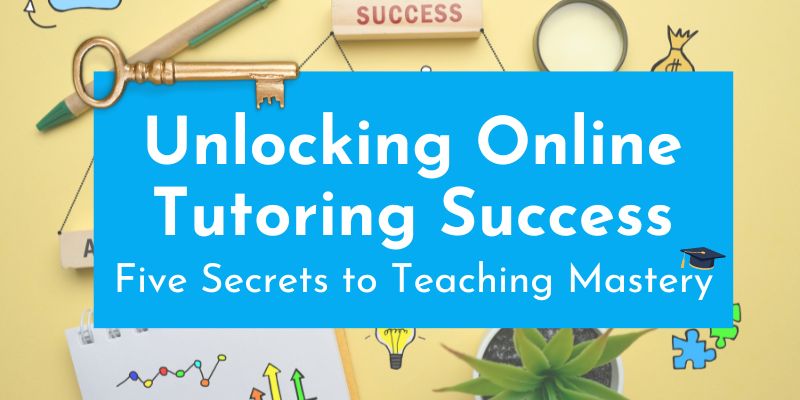Unlocking Online Tutoring Success: Five Secrets to Teaching Mastery 🏆🔑
Are you finding that students don’t convert or fail to re-join with you after their initial lesson bundle? Are most of your students fresh faces rather than your long-time learners?
I know, I know – it’s scary when you have your hopes set on converting a new student or retaining an existing one, only for them to ghost you like a blind date gone wrong.
If you’re hanging your head in disappointment and thinking ‘yup, that sounds like me!’, then take a deep breath, roll up your sleeves and let’s unlock five secrets to online teaching mastery that will keep your students booking bundles with you month after month – and even referring you to their friends!
If student retention is right at the top of your list of tutoring pain points, I boil this down to one of two causes:
1. Your lessons are not captivating enough to offer continual long-term progress or
2. Your teaching strategies or professionalism may be lacking.
At the risk of falling off my soapbox, you may benefit from hearing some hard-to-swallow truths of the online tutoring industry. Even for seasoned teachers, these top tips may spark inspiration for elevating your virtual classroom experience to new heights for yourself, your students and their parents!

1. Girl Scouts Got it Right 🍪
What’s the first rule for Girl Scouts? ‘Always be prepared!’
Where online teaching is concerned, this rule couldn’t be more transferrable. Preparedness means having a plan and a back-up plan for each lesson. Ask yourself:
🤔 Do I know what I am teaching today and how I am teaching it?
🤔 What will I do if technology fails me?
🤔 Can I adapt this lesson down or extend up if my student requires it?
🤔 What will I supplement with if we work through material quicker than expected?
🤔 Do I know how to answer those tough grammar questions if the student or parent ask?
It’s worth having a back-up everything: device, power source, internet source, virtual classroom, lesson, even alarm!
Professionals don’t make excuses, they prepare.
Experience goes a long way where differentiating your lessons is concerned. But a great pre-made curriculum, like Crystal Clear ESL’s, can set you up for greatness and save you loads of time preparing your own lesson materials! Your curriculum should include ideas for scaling up and down the difficulty, comprehension-checking questions and ways to extend the lesson. It should also break down tough grammar points into easily navigable teaching slides and properly scaffold foundational concepts.
Know your curriculum: Scan through each slide, teaching note and extension prompt before the lesson to ensure the topic and difficulty are appropriate, so you don’t have to do this while the student is watching.

🙋♀️ Hands up if you’ve ever taught a class in your PJ bottoms! Preparedness also involves your appearance. Luckily, teaching online means you can be party below- and business above-the-waist, but don’t get complacent. I’ve heard the horror stories of ‘teachers’ transitioning from asleep to teaching in >5 minutes: yep, it’s the McDonald’s of online teaching. A decent shirt, combed hair and some lipstick go a long way, especially because your impression on your student consists of a constant close-up in a 20cm box, and that camera is not forgiving!
If you want to charge top dollar, you’ve got to be top dollar.

2. Positivity and Professionalism 👩🏫
Psychologists agree that effective learning relies heavily on environment. Even in an online classroom, always be positive and professional. There are several considerations where your virtual ambiance is concerned:
1. Keep it clean: Make sure your classroom space is uncluttered and visually appealing to the age group you’re teaching.
2. Change is as good as a holiday: Incorporate a mix of games, TPR, videos, songs (especially for younger learners), interactive exercises and quizzes, simulations and authentic materials (physical and digital realia and examples) to keep lessons engaging and to cater to different learning preferences. Sounds overwhelming? It need not be with a good web-based curriculum at your fingertips! Gamifying your lessons will help you stand out amongst the vast sea of tutors, create a fun and uplifting learning environment, boost student engagement and increase student retention.

3. The First Rule of Fight Club: ‘You do not talk about Fight Club,’ and the same can be applied to your in-class errors – don’t verbalise your errors to your students. A lot of teachers let themselves down by verbalising errors, ‘Oops!’ or ‘Where did I put that file?’ – students and parents quickly pick up on fumbling ineptitude, even if they don’t say anything about it. Never conduct your lesson with anything less than grace, confidence and a smile!
4. Check you tech: Get to class early and test everything in advance – your camera, your mic, your speakers, your lighting. Where a virtual classroom platform is concerned, I love logging into a meeting from two separate devices so I can practice with all the features activated and see controls from the student’s perspective.
5. Create zen learning: There is no excuse for interruptions during your lessons, whether by children, dogs barking, the postman, nothing. It may sound harsh, but even if your clients seem forgiving, they will be judging you as unprofessional as they watch their contact minutes tick down.
6. Give 100% of your attention 100% of the time: You may think it goes without saying, but it doesn’t, unfortunately (insert cringey face here). Give your student 100% of your attention for the full lesson. Don’t write feedback during lesson time, or check your phone, or navigate to some other unseen browser window. The client is paying for your undivided time and your professional conduct.
7. Don’t get caught out using incidental language: Speaking naturally, if a little slower than usual, is good practice for more proficient students. After all, they are paying for your expertise in English and hoping that your fluency, your cadence and your idiomatic language will rub off on them. On the other hand, with true beginners and lower proficiency students, using too many or unnecessary words can be confusing, intimidating and overwhelming for students, and clients can quickly begin to think your lessons are too difficult.
8. Remind students of their goals: Bad student behaviour (or poor classroom management!) will slow progress. Students taking classes in noisy environments, not having the appropriate equipment (e.g. a headset), watching TV or playing computer games during the lesson, eating full meals during the lesson, having a parent talk over them (or you) all inhibit learning. Lay out your expectations of class conduct in advance and be firm about them. You can even create a PDF of your classroom protocol with an app like Canva to send to parents before welcoming new students. Your protocol document can include classroom behaviour rules, cancellation policies and even a guide for troubleshooting tech problems. Remember the first rule of Girl Scouts? 😉
9. Be punctual. Always. Time waits for no man, or in this case, no teacher! Clocks can differ by a few minutes here and there, so always aim to start one minute before lesson time, just in case your client’s watch has already ticked over ahead of yours. What’s more, allowing time extensions to one student or some lessons and not others can breed resentment; a gift of 5 extra minutes per class can quickly become an expectation. Rigorous punctuality is a pillar of professionalism the world over, and will elicit respect, I guarantee it. Good time management also translates to being able to fit more students in a day and spending less time on feedback and planning overall. Watch your bottom line, and you’ll be giving yourself a well-deserved pay raise!
3. The Importance of Progress 📈
We know that the most important factor in your online ESL classroom is your relationship with your student, but at a close second is ensuring student progress. What parents/clients are really paying for is progress, not a babysitter. Your student should be learning something every class – and this is why having clear and achievable learning objectives is a must!
In formal educational pedagogy there are two types of assessment: summative and formative. You’ll be used to summative, having once been a student yourself; but formative can actually be the more useful of the two. Formative assessment is the continual assessment of student understanding and progress through quizzes, assignments, and informal checks, and can be done covertly. Understanding your student’s comprehension allows you to adjust and adapt your teaching on the fly and provides fodder for actionable feedback. Formative assessment doesn’t have to be onerous; a good prepared curriculum will usually signpost these opportunities with built-in exercises, homework tasks and assessments.

4. Feedback is your best sales tool 💬
Feedback is your direct line of regular communication to your client where you can freely evidence the value they are getting for money, so make it worthwhile. First, prove your student’s progress, and then provide lesson-specific, actionable feedback to help them understand their strengths and areas for improvement. Empower students to become self-regulated learners by providing them with tools and strategies to set goals, track their progress, and reflect on their learning experiences. This not only fosters independence but also instills a sense of accountability. For a detailed breakdown on giving top notch feedback and a free editable feedback form, see my dedicated blog post.
5. Bring Your Sparkle 🪄
Your students have tens of thousands of teachers to choose from, but they chose YOU. They did so because of the relationship they have (or expect to have) with you. Your number one job is to maintain that relationship with a personal, yet professional approach. But how do you do that?You bring your sparkle! Light up every class with the unique essence of what makes you you! Never bring your personal problems to class. Make your classroom a place of calm, of positivity and of fun, where students are encouraged to experiment with new language skills and make mistakes. This will ensure your students not only love attending your lessons, but are instilled with a lifelong love of learning English.

Ready to become professional best buds with your students and their parents? Here are some top tips for relationship-building:
⭐ Be excited to greet your student and sad to see them go.
⭐ Keep a quick, active pace to lesson material (this will vary from student to student) and an enthusiastic tone for learning.
⭐ Adapt your background and rewards to suit your student’s interests. Try using new technology like ManyCam or MyInstants (‘the ultimate Meme soundboard’) to create a sensory virtual learning environment that captures students’ attention.
⭐ Share fun personal knowledge, like your favourites/dislikes or funny anecdotes, and encourage students to do the same. Adult learners bring life experience to the classroom, so encourage your adult students to share their opinions, beliefs, preferences and experiences with you too!
⭐ Be expressive and even a little comical: Use OTT facial expressions and make jokes – as appropriate. You don’t need to put on an Oscar-winning performance, but let your fun flag fly and exaggerate your expressions and TPR whenever appropriate to the lesson.
⭐ Use props and games to make the lesson more dynamic – even for older students. You can also introduce a class mascot for lessons with younger learners. Not only is a class mascot a great way to scaffold role-play and dialogue with young students, a class mascot can also add extra pizzazz to your lessons and work wonders as an ice-breaker with shy students.
⭐ Know your students’ birthdays and unique cultural holidays, and celebrate these special days with them. Do a countdown of lessons before their birthday or even a special birthday or festive lesson, like these! Going the extra mile will never go unnoticed by your students’ parents, so you can even make a digital birthday card on Canva to send to your students.
⭐ Send certificates of completion to your students after they’ve completed a specific learning milestone, mastered a certain language skill, or completed a curriculum’s unit or level. Some curricula will even provide these for you!
⭐ Greet and chat briefly with parents, make an effort to get to know them a little (outside class, preferably). Regularly thank parents for the honour of teaching their child and give parents reasons to be proud of their child.










